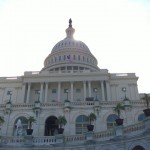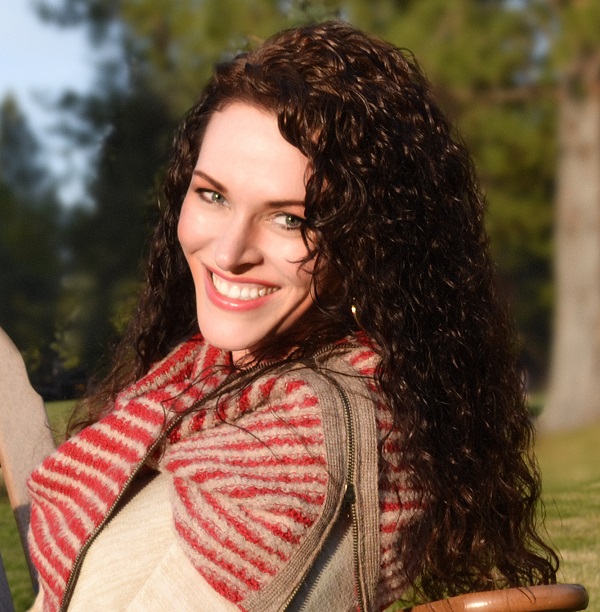I adapted the more famous version of this poem for a sermon a few years back, and it seemed like a good (and hopefully fun) anchor for a post on the role of Church and Government and factors Christians should weigh when voting and picking political sides:
One night I had a wondrous dream
Two sets of footprints there were seen,
My Lord and I walked hand and hand
And left our footprints in the sand.
But as I watched our tracks progress
Suddenly, to my great distress
Only one set of footprints I did see
And I wondered where my Lord’s might be.
So I asked him why, when I needed Him most
I would be abandoned by the Lord of Hosts?
He said, “My precious child, I thought you knew
That was when I carried you.”
But then some stranger prints appeared
And I asked the Lord, “What have we here?
Those prints are large and round and neat
But Lord, they are too big for feet.”
“My child,” He said in somber tones,
“For miles I carried you alone.
I challenged you to walk in faith,
But you refused and made me wait.”
“The Least of These–they needed care,
But you were selfish and wouldn’t share.
You focused on money and bedroom rules,
Forgetting love and forgiveness are my primary tools.”
“You disobeyed, you would not grow,
The walk of faith, you would not know,
So I got tired, I’d had enough,
And I dropped you there right on your duff.”
“For there comes a time when you can no longer ride
Where, if you’re to walk in faith, you must decide
Whether to rise and take a stand,
Or just leave butt prints in the sand.”
That poem provides a nice context to tackle one of the biggest questions in this election: the role of government. It’s one of the clearest differences between the two parties. And it’s one of the most important questions Christians need to deal with. Many simply do by saying, “the Church could do a better job than government,” or “caring for the poor is an individual responsibility and shouldn’t be left to government.” I think the Church could do a better job (in most cases) of caring for the poor than government…if it actually answered Christ’s call and did the work. The problem is we’re not.
If only weekly church-attending Christians tithed, the Church would have more new money coming in than the entire U.S. domestic budget. Again though, we’re not. You may be, but the Church isn’t and we’re leaving huge gaps that struggling families are falling through.
The problem in America isn’t that government is doing too much. The problem is that Christians are doing too little. And this is the political question: Where should our energy and resources be focused? What witness do Christians want to make in politics? Should we focus on tearing down the only safety net that exists for the working poor, or on lifting them up so they don’t need it anymore?
Rather than focusing on cutting Medicaid and school lunches and Section 8 Housing—thereby leaving families depending on those programs to make ends meet with nothing—Christians should be working to make those programs unnecessary. We wouldn’t need free school lunches if we had enough food pantries. We wouldn’t need Section 8 Housing if we built enough Habitat Homes.
Jesus made it quite clear that faith is about more than ourselves. As the Book of James says when talking to the early Church about the sin of giving special privileges to the rich and ignoring the poor, “You believe in God? Good for you! Even the demons believe in God…and they shudder.”
Faith requires relationship with God, which is then reflected in our relationship with others. There was only one time in the NT where Jesus lays out the criteria he would use to judge the world: Matthew 25, the story of the sheep and the goats, “whatever you do unto the least of these.”
In a Democratic system where our government represents us and should reflect our values, Christians need to ask if the right way to vote is for the Party wanting to cut support for the least of these and increase government support for the wealthy? There are ways to justify such a decision with Ayn Rand and trickle-down economic theories, but it’s really hard to do with the Bible (if you haven’t seen it already, check out our Guide to Scripture, Politics, & the Budget).
Twitter: @SappEric
 Content Director’s Note: This post is a part of our Election Month at Patheos feature. Patheos was designed to present the world’s most compelling conversations on life’s most important questions. Please join the Facebook following for our new News and Politics Channel — and check back throughout the month for more commentary on Election 2012. Please use hashtag #PatheosElection on Twitter.
Content Director’s Note: This post is a part of our Election Month at Patheos feature. Patheos was designed to present the world’s most compelling conversations on life’s most important questions. Please join the Facebook following for our new News and Politics Channel — and check back throughout the month for more commentary on Election 2012. Please use hashtag #PatheosElection on Twitter.











